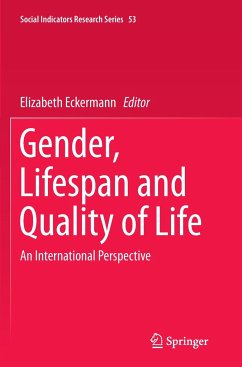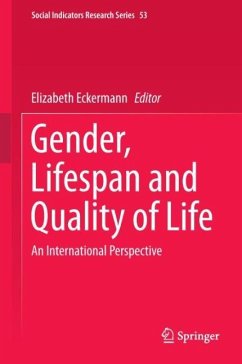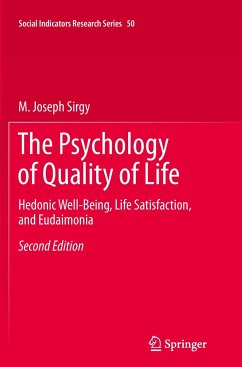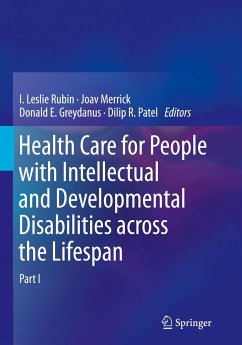
Gender, Lifespan and Quality of Life
An International Perspective
Herausgegeben: Eckermann, Elizabeth
Versandkostenfrei!
Versandfertig in 6-10 Tagen
76,99 €
inkl. MwSt.

PAYBACK Punkte
38 °P sammeln!
This publication addresses the gender dimensions of people's lived experience and emphasizes how gender relationships differentially impact on women's and girls' as well as men's and boys' subjective well-being across the lifespan. It therefore fills a significant gap in the literature on quality of life and subjective well-being. The book brings together research which compares female's and male's subjective experiences of well-being at various life stages from a variety of countries and regions, particularly focusing on women's subjective well-being. Sex-disaggregation of data on objective c...
This publication addresses the gender dimensions of people's lived experience and emphasizes how gender relationships differentially impact on women's and girls' as well as men's and boys' subjective well-being across the lifespan. It therefore fills a significant gap in the literature on quality of life and subjective well-being. The book brings together research which compares female's and male's subjective experiences of well-being at various life stages from a variety of countries and regions, particularly focusing on women's subjective well-being. Sex-disaggregation of data on objective conditions of quality of life is now routinely undertaken in many countries of the world. However, despite the burgeoning of objective data on sex differences in life conditions across the world, very little gender analysis is carried out to explain fully such difference and there is still a serious dearth of data on gender differences in subjective experiences of quality of life and well-being. This publication will assist researchers, teachers, service providers and policy makers in filling some of the gaps in currently available literature on the nexus between age and gender in producing differential experiences of subjective wellbeing.














